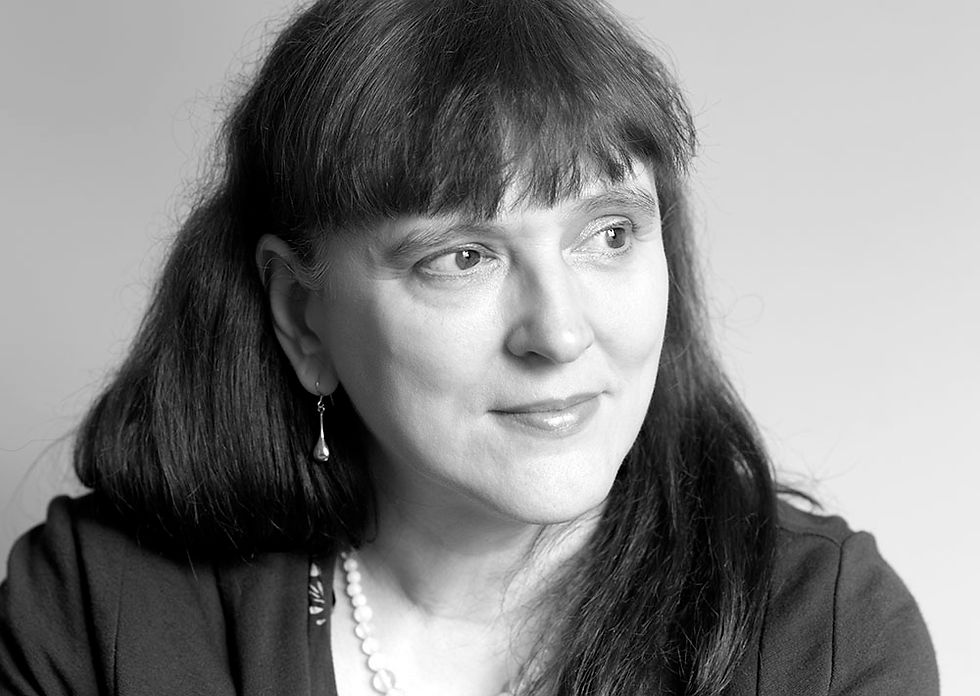Poet Gregory Betts: On literary community and collaboration, and AI's influences on writing
- Sheelagh Caygill

- Aug 5, 2025
- 4 min read
Updated: Aug 28, 2025
Gregory Betts is a poet and professor at Brock University, St. Catharines, Ontario, and the author or editor of 25 books. His poems have been stenciled into the sidewalks of St. Catharines and selected by the SETI Institute to be implanted into the surface of the Moon. He has performed his poetry as such venues as the Vancouver 2010 Olympic Games as part of the Cultural Olympiad, the National Library in Dublin, and the Sorbonne Université in Paris, amongst many others. He is an award-winning scholar of the Canadian avant-garde, curator of the bpNichol.ca Digital Archive, and Literary Arts Residency Lead at the SETI Institute. This poet speaks on literary community and collaboration and offers his views on the coming impact of AI, noting that a lot of melodramatic lyric garbage has already been bested by AI.
Poet Gregory Betts on literary community and collaboration

OCW: What life experiences have shaped your writing style?
GB: I grew up in a musical subculture that taught me the value of art as a place for community. This was the community that developed copyleft as an alternative to copyright. This sense of communal experience was reinforced by the importance of music and storytelling to my Nova Scotian roots, which builds a history, or revises it, as it delights. Consequently, when I work, I also work in dialogue with other writers, thinking through the connections, intersections, and interactions between me and others, how language is fundamentally social. Trying to think about ways that texts can create communities. I’ve never had a strong sense that I own my language, a delusion that many writers are prone to.
As an example, a few years ago, at the dawn of Facebook’s popularity, I coordinated the world’s largest literary collaboration. Called “Three Words per Poem”, we had over 2000 contributors participate in the daily ritual creating a book that I later released as a PDF, letting it be shared and passed around easily. We made it, it is everybody’s. Anybody was free to publish any piece in the text, and a few people did.
A poet's evolving sense of audience and craft
OCW: Has your writing evolved over the years? If so, how? Through writing experience? Reading a lot? Writing courses or communities? A combination, or something else?
GB: Yes, I am not the same writer as often as I can. When I first started writing, I assumed that my work would be read by a very small number of people. I wrote with them in mind. I now have an expanded sense of who I am working with when I write. This does come from performing in front of audiences from very small to large, but also from conversations with so many people around the world that has expanded my sense of what writing can and needs to do now. A lot of my reading is deep in the archives, reading obscure, weird, lost, and sometimes terrible texts. These have given me a strong sense of the history of Canadian experimental writing (I wouldn’t say tradition, because it is too broken, discontinuous) which provokes and consistently expands my writing.
OCW: If you’ve been published, how did you find your first publisher?
GB: My first story was published by going to our national book chain, jotting down names and addresses from the Literary Markets guide in the aisle of the store, and submitting. My first book was published by Jay MillAr at BookThug Press (now Book*hug). We met at a poetry reading. I invited him out to lunch where we talked about the book, and came to terms pretty quickly.
My first poem was published without my knowing. My highschool English teacher collected my poetry, submitted it to an anthology of student work. They sent my copy to my mother, who put it away and forgot about it, none of them ever letting me know. I only discovered this whole situation a few years ago. I wonder if it would have given me more confidence as a writer when I was starting out? Probably not – confidence isn’t really necessary to the kind of work I do, so more of it might have gummed things up.
Finding your publisher and your place in a community
OCW: What advice/guidance would you give to writers?
GB: Write like no one is reading; write the book you want on your bookshelf. Have a bookshelf! Fill it with books! Read those books! Reach out to those authors, let them know that you are reading them, what you are thinking about. Join a community, or make one. Create space for every space you take. If you do a reading, organize a reading. If you get published, figure out a way to publish (or help others publish). In other words, get over yourself, get down to the street and make it happen.
Melodramatic lyric garbage has already been bested by AI
OCW: Do you see generative AI as a threat or benefit to writers?
GB: It will change literature. It will likely have as big an impact on writing as the photograph did on visual art. A lot of melodramatic lyric garbage has already been bested by AI, so there is no sense in bothering with that kind of work anymore. Human writers will have to work from the presumption of lost territory to the machine, but there is endless ground yet to cover, so I will look to writers who look forward than back.


Comments